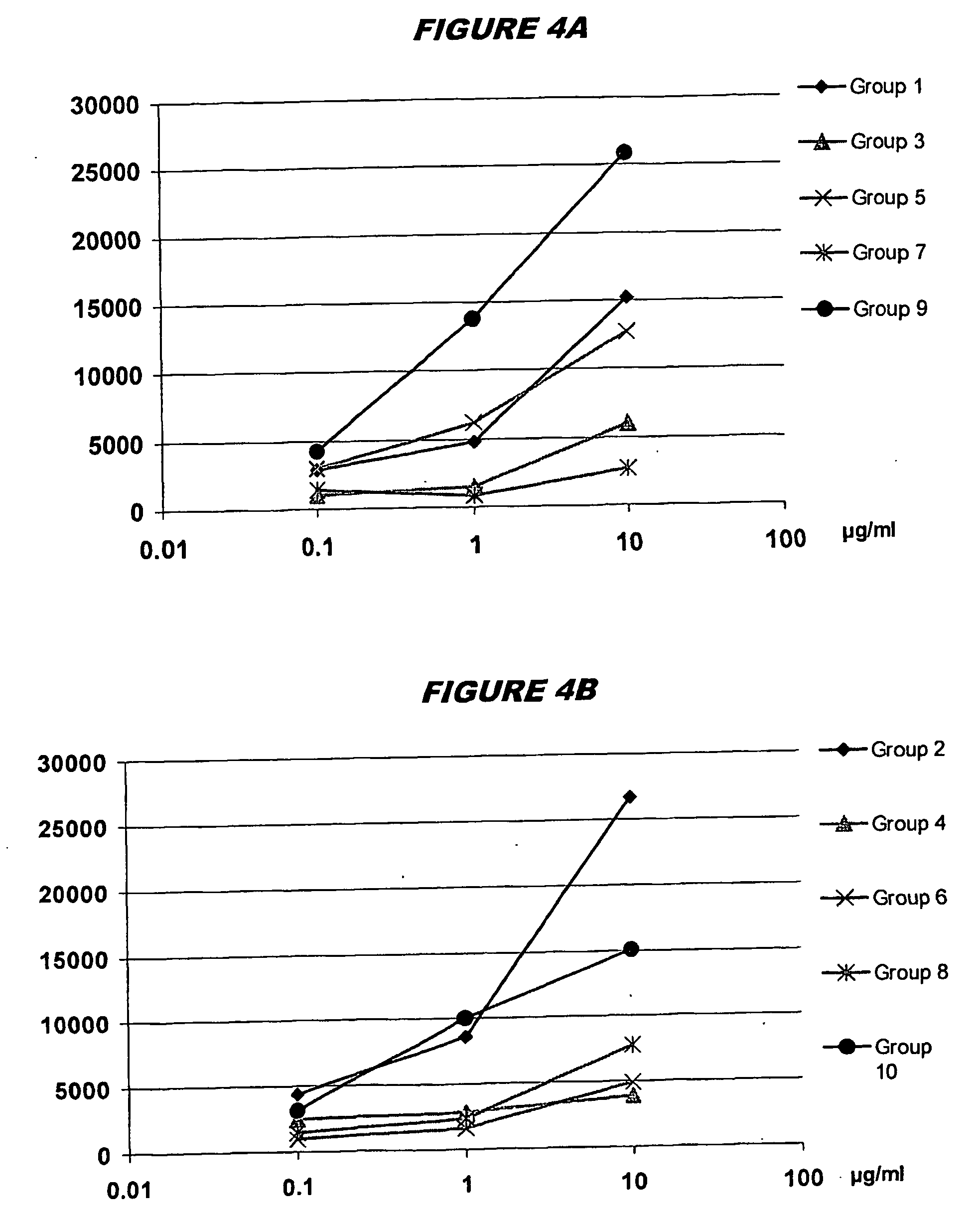Mucosal vaccines with chitosan adjuvant and meningococcal antigens
a technology of mucosal vaccine and meningococcal antigen, applied in the field of vaccines, can solve the problems of short protection time, poor immune response, and inability to use in infants, and achieve the effect of improving safety
- Summary
- Abstract
- Description
- Claims
- Application Information
AI Technical Summary
Benefits of technology
Problems solved by technology
Method used
Image
Examples
Embodiment Construction
Meningococcal Serogroup C Vaccine
[0133] A CRM197 meningococcal C oligosaccharide conjugate [6,9] was administered intranasally at 1 μg per dose (measured as saccharide) to mice using N-trimethyl-chitosan chloride [179] and / or LT-K63 adjuvants. TMC was used as 8 μg per dose, and was prepared from chitosan (‘Chitoclear’, Primex ehf, Iceland) from shrimp shells (94.5% acetylated) with 18.9% substitution. LT-K63 was used at 1 or 0.1 μg per dose. Unanesthesized female BALB / c were immunized intranasally on days 0, 21, 35 with the formulations in 10 μl volumes (5 μl per nostril). Serum samples were taken before and after each immunization. Nasal washes were taken ten days after the third immunization. IgG and IgA antibody titers specific for MenC and for LT were determined by ELISA [180].
[0134] Serum IgG responses are shown in FIG. 14: (A) ELISA and (B) bactericidal (log scale). FIG. 15 shows IgA titres in (A) serum and (B) nasal washes. FIG. 16 shows the results of a spleen proliferati...
PUM
| Property | Measurement | Unit |
|---|---|---|
| Mass | aaaaa | aaaaa |
| Mass | aaaaa | aaaaa |
| Mass | aaaaa | aaaaa |
Abstract
Description
Claims
Application Information
 Login to View More
Login to View More - R&D
- Intellectual Property
- Life Sciences
- Materials
- Tech Scout
- Unparalleled Data Quality
- Higher Quality Content
- 60% Fewer Hallucinations
Browse by: Latest US Patents, China's latest patents, Technical Efficacy Thesaurus, Application Domain, Technology Topic, Popular Technical Reports.
© 2025 PatSnap. All rights reserved.Legal|Privacy policy|Modern Slavery Act Transparency Statement|Sitemap|About US| Contact US: help@patsnap.com



